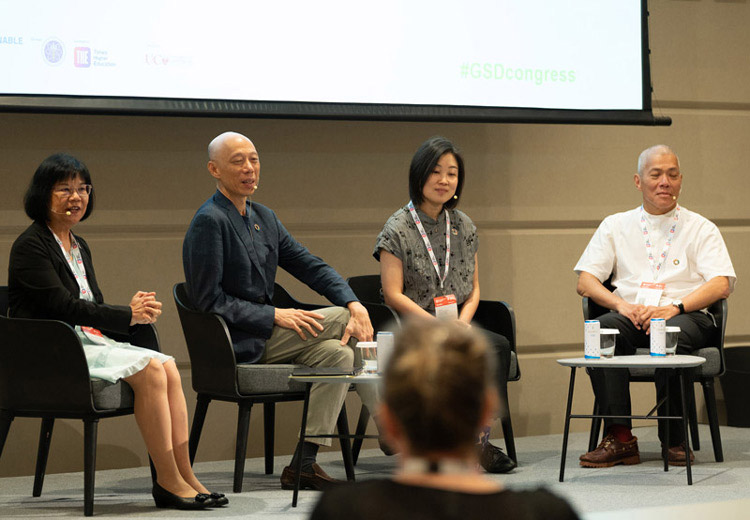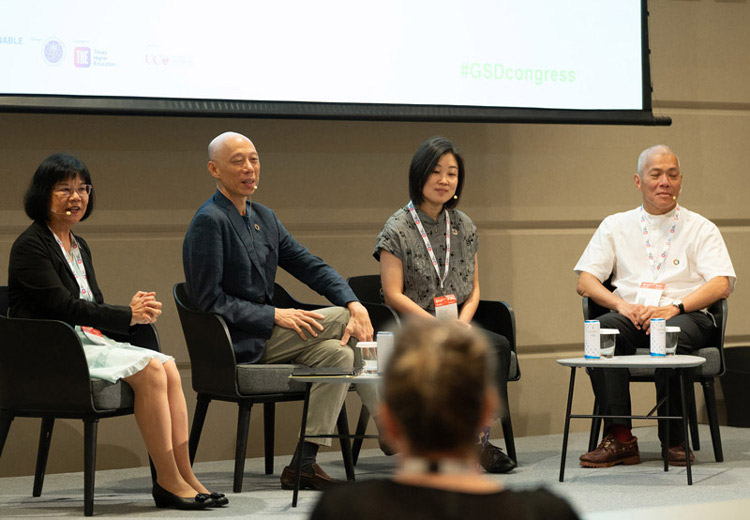Community engagement is necessary for impact

Sponsored by

Chinese University of Hong Kong researchers focus on relationships with rural communities
Researchers need to respect and engage with communities if they want their research to have an impact, said panellists at an event, held in partnership with the Chinese University of Hong Kong (CUHK), at the 2024 THE Global Sustainable Development Congress in Bangkok. “The scientific part is easy because it’s universal – it’s just physics. But the human part is difficult,” said Edward Ng, architect and Yao Ling-Sun professor of architecture at CUHK. “We need to know what [communities] need instead of telling them what we think they need.”
The session unpacked successful sustainable development initiatives and how researchers can ensure sustainability and impact. Ng initiated the Wu Zhi Qiao (Bridge to China) programme in 2005, which began with the construction of a single bridge across a river in rural China, linking a remote village to a nearby school.
“Since then, we have completed more than 50 bridges in different parts of mainland China,” said Kam-Sing Wong, chair of the Wu Zhi Qiao Charitable Foundation and a distinguished department of architecture fellow at the University of Hong Kong.
Li Wan, a research associate at CUHK, also participated in bridge-building projects. “After I’d built several bridges, I started to think about rural sustainable development”. This prompted her to enrol in a PhD programme at CUHK. In 2014, she and Ng co-founded the “One University One Village” (1U1V) initiative, which aims to use academic knowledge to improve the livelihoods of people in rural areas.
In one project, researchers identified post-earthquake construction as a major issue in parts of the country, particularly remote mountainous regions. “They don’t have enough resources from outside to support the reconstruction,” said Wan, who is also the convenor of 1U1V. However, when researchers first approached villagers, the local community was suspicious, she remembered.
“So we used the resources within the university to research, using scientific methods on how to make local technology seismic-proof, comfortable and environmentally friendly,” said Wan. One of the construction teams comprised only women, she added. Construction teams tended to be male-dominated, partly because women struggled to lift the heavy construction tools. “So we made lighter tools that women could use,” Wan said.
“It is a ‘sustainable economy’ model and a long-term relationship between us and the villagers,” Wan said. “We provide the technology and scientific research and they provide their own local technology and skills – and we work together.”
At the heart of Wu Zhi Qiao and 1U1V’s success was co-creation, said the speakers. “Every time we do these projects, we need to work slowly because we need to know what they need instead of telling them what we think they need. And we need to earn their respect,” said Ng. “You need to know them before you can contribute to some of the things they need.”
The panel:
- Edward Ng, Yao Ling-Sun professor of architecture, Chinese University of Hong Kong
- Mai Har Sham, pro vice-chancellor and vice-president of research, Chinese University of Hong Kong (chair)
- Li Wan, research associate, Chinese University of Hong Kong
- Kam-Sing Wong, chair, Wu Zhi Qiao Charitable Foundation
Find out more about the Chinese University of Hong Kong.
